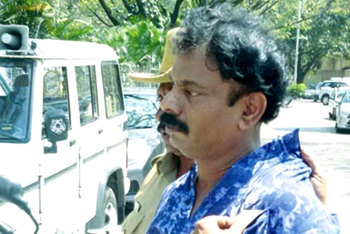Bengaluru, Feb 22: An inebriated man hurled a chocolate packet at chief minister Siddaramaiah at Ravindra Kalakshetra on Sunday morning, setting off a bomb scare.

Sources said the trouble started when Prasad, from the balcony of the auditorium, interrupted the CM's speech asking him to list what he has done for his community. As the CM enquired Prasad about his community, the man threw an object towards him.
The crowd panicked initially, but it was soon found that the packet sealed with red tape contained chocolates. SJ Park police detained Prasad and released him on bail in the evening.
According to police, Prasad, said to be from Savita Samaja, was aggrieved as he couldn't enter active politics.
Siddaramaiah termed the incident part of a democracy and said he would look into the issues raised by Prasad's community.
Deputy commissioner of police (central) Sandeep Patil said Prasad was making incoherent statements during questioning. "We haven't pressed charges against him. We're trying to ascertain if he's psychologically fit. We've summoned his wife to get more details about him," he said.
He has been booked for public nuisance under IPC Section 290 and Section 92 of the Karnataka Police Act.




Comments
would have thrown really bomb.
he is drunk or mentaly loose,becouse his name is ravindra,,,,
Add new comment